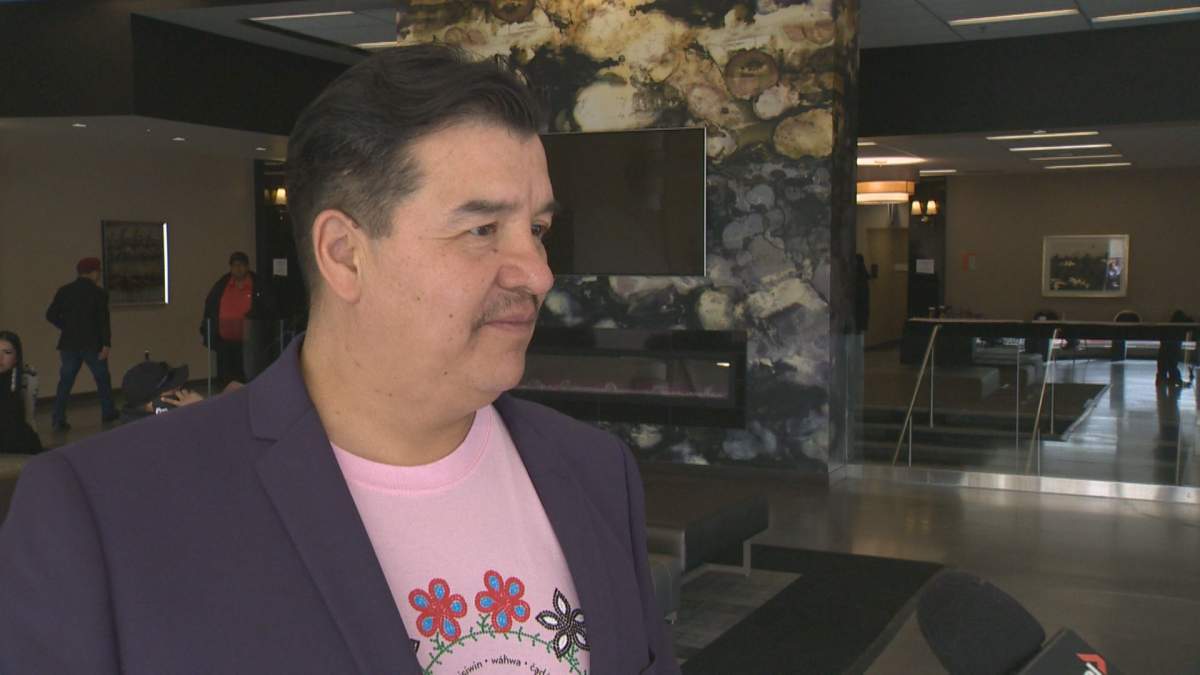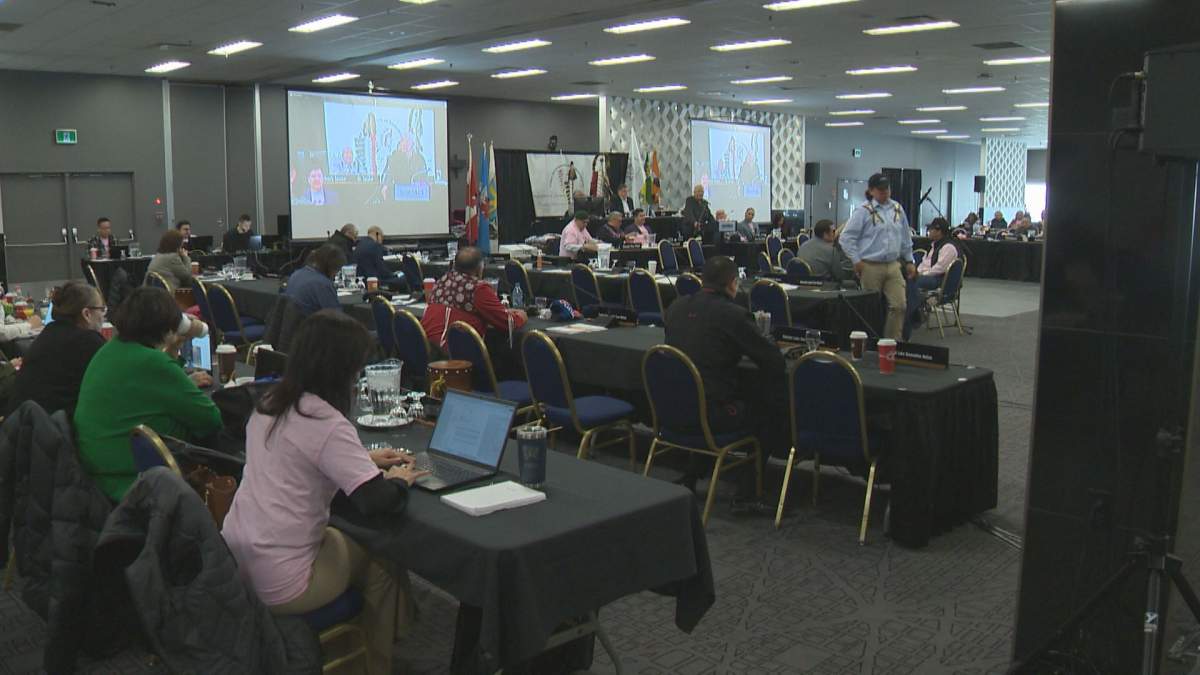From treaty rights to developing legislation, attendees at the winter session of the Federation of Sovereign Indigenous Nations (FSIN) Legislative Assembly heard the discussions and resolutions.

For two days, many gathered for the annual FSIN assembly where an array of topics was discussed, such as developing First Nations water legislation.
“The chiefs mandated us to come up with our terms, our wording (and) the direction coming from our perspective,” said FSIN Chief Bobby Cameron. “Because we live in our communities. We’ve seen it. We’ve experienced it.”
FSIN Chief Cameron said the federal government is not taking the direction that it should be when it comes to addressing concerns of water on First Nations.
“We’re seeing the best solutions for water legislation or any legislation already at the First Nation level,” he said. “If you don’t implement the direction coming from those First Nations, then it’s going to fail.”
Conversations about funding for Jordan’s Principle also came up. Chief Cameron said many applicants for funding have been denied for a variety of reasons which include lack of money.
“Our people depend on those financial dollars to help the families (and) the children,” he said. “It’s a critical issue … governments not listening … not understanding or maybe they don’t even care … If families need that extra help, let us know because we need their input … and then we can help those families navigate through that system that they’re being declined.”

Get daily National news
The discussion of healing was one of the biggest takeaways from the two-day assembly that resonated with Chief Cameron.
“Many of our people are still on that healing path,” he said. “If we can’t forgive, we can’t heal. That was a powerful message. It was good to be part of.”
The FSIN Legislative Assembly was held at Regina’s Queensbury Convention Centre on Feb. 27 and 28.









Comments
Want to discuss? Please read our Commenting Policy first.